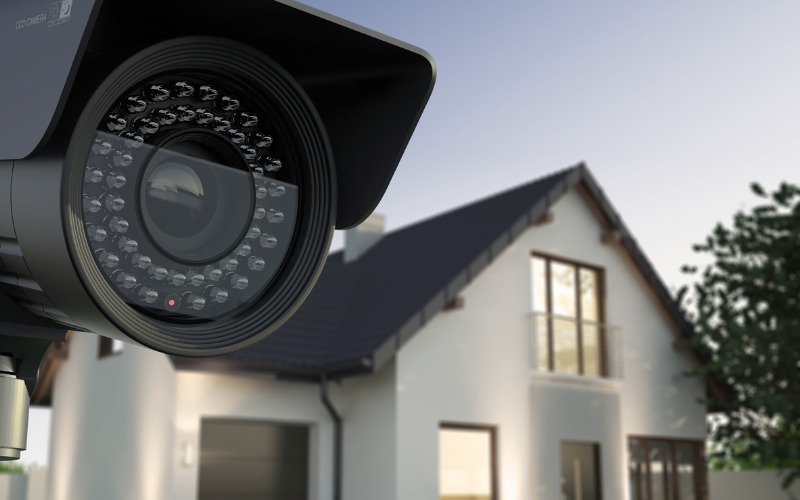As you leave your old home and upgrade to a new one, it might not be easy knowing how to use technology to keep your new home safe and secure. With so many potential threats lurking around every corner, there are things that you can do before, during, and after moving day that will make your new space even safer than it previously was. Of course, it’s not just about security. It’s also about convenience and great value.
It is important to note that the best security system is the one you can afford. You can’t afford to buy everything new, and while putting a safety plan in place before your move, it is equally important that you know how to adapt. That way, you will be ready for whatever comes your way.
1. Lock your doors and windows
While you may not be able to afford all new locks and windows, using barn door lock sets or a deadbolt lock will provide you with a higher level of security. They’re easy to use and affordable. If you’re upgrading to a new house, make sure you try to keep your original locks in place so that you can reuse them. Otherwise, you may have to replace them before moving in.
2. Don’t shut off utilities
While your home should have backup power, some people decide to leave their utilities off for added security. This can be a bad idea, as you are most vulnerable at night when it’s dark. Shutting off utilities also makes you incredibly vulnerable to water damage, so if possible, ensure that your home is sufficiently waterproofed and has emergency plans in place.
3. Bring your ID everywhere
Even the strongest home security system can fail without a proper database of information on everyone living in the house. This means that everyone needs to bring their IDs everywhere they go. This may be a bit inconvenient when you’re moving, but it’s also a lot more convenient than driving over to a friend’s house.
4. Know the neighborhood
To ensure the safety of your home and belongings, you must know how to recognize threats around you. Consider your neighbors. If they’re all friendly, consider inviting them over to get to know them better. Meeting them beforehand will help you get to know them in a more comfortable setting and establish a trustworthy relationship. This is important as it’s not uncommon for new people in town to take advantage of others’ kindness.
5. Plan and learn from mistakes
Having a perfect plan to keep your home safe and secure cannot be easy. However, it would help if you took the time to make one. Otherwise, you’re likely to waste a lot of money on security systems that are not worth it. You’ll be living in your home for years and years, so you should prepare well in advance and learn from your mistakes as soon as possible.
6. Have a system in place
You must have a system that will keep you safe and secure for years. You may not be able to afford all new locks, but you can always invest in home security systems that are more affordable, like ones for windows, doors, and barn doors. Other options include cameras that can be mounted on walls around your property. Choose the best system for your needs and budget.
7. Teach children safety
Certain cities can be dangerous places for children. Parents must be aware of many dangers associated with home security and traveling before allowing their children to leave home alone. Children must be taught how to stay safe while they’re on their own and how to deal with strangers and other people who may want to take advantage of them. Technology can help you keep your children protected.
8. Take responsibility
If you’re moving into a new house, it’s your responsibility to make sure that there are no issues. If the house has had animals, insects, or other things you don’t want inside your home, these should be removed before moving in.
If a relative is selling their home, but you’re staying behind temporarily because of an extended trip abroad, it’s important to remember that everything belongs to the house. It may or may not have been touched by previous owners, and the house may contain items that belong to someone else.

